FamilyWorks
Program Update Spring 2024
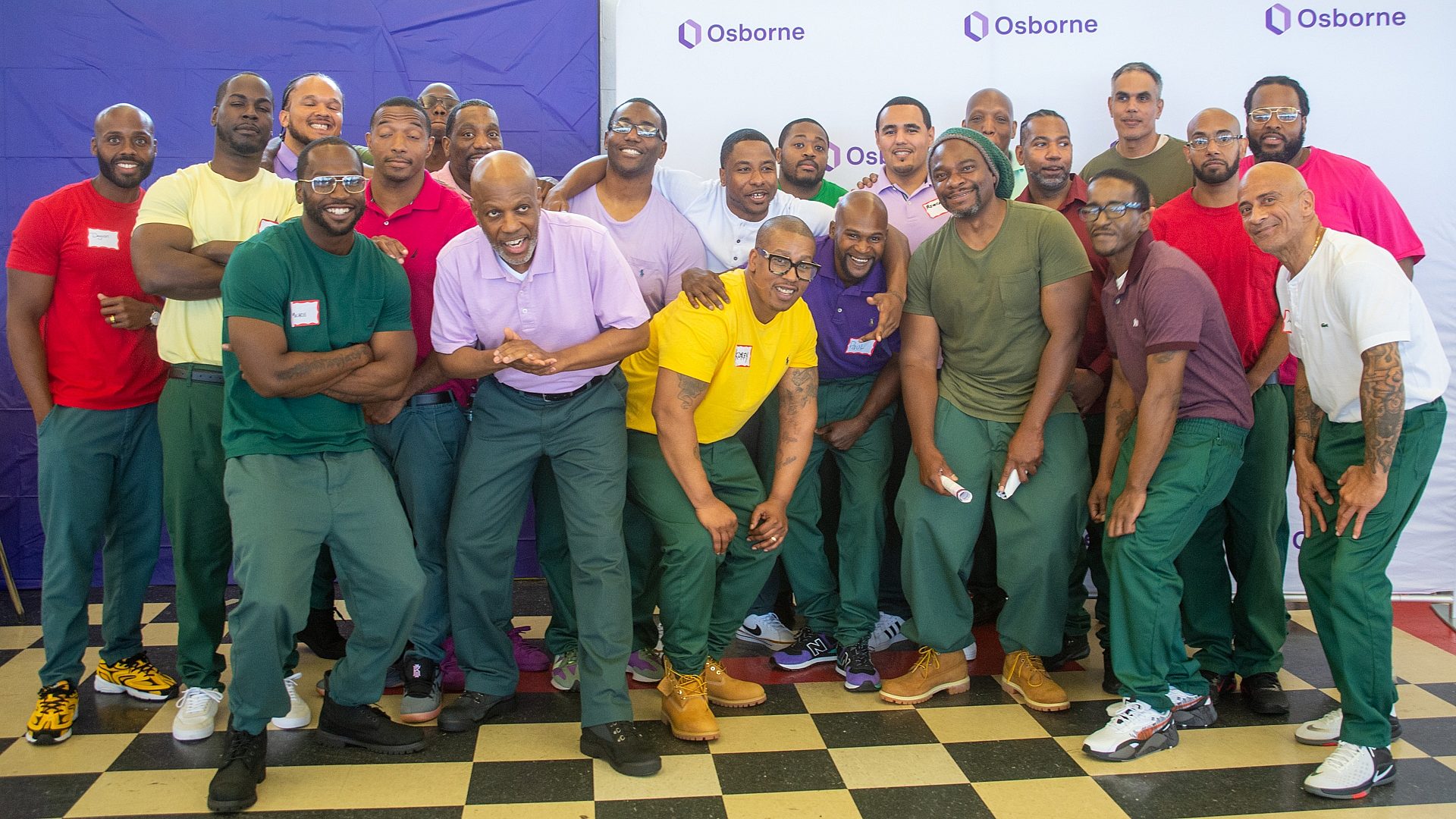
FamilyWorks is the first comprehensive parenting program for men in a state prison anywhere in the United States. Initially offered at Sing Sing Correctional Facility in 1986, the program remains unique today for its comprehensive scope. Osborne works in partnership with the New York State Department of Corrections and Community Supervision to run FamilyWorks in eight men’s prisons. In April 2024, DOCCS renewed funding for the program for another five years.
FamilyWorks offers a wide array of opportunities for people impacted by incarceration to become better parents, forge healthier relationships with their families, and stay connected with loved ones. The curricula have been developed and adapted over time with the input of parents and couples who have experienced incarceration, as well as children and caregivers facing parental incarceration. The courses combine lectures, videos, group discussions, homework, and role plays to prompt self-reflection and provide opportunities for participants to learn from others and heal from past trauma and harmful relationships. About 200 men participate in FamilyWorks educational programming each year, with hundreds more engaging in visits with their children in Osborne Family Centers.
“What I learned was there was a cycle of being parented and being a parent. I learned how to communicate with children, understand their different personality traits. My parenting style changed dramatically. It’s not just that I benefited from the FamilyWorks classes – my children benefited.”
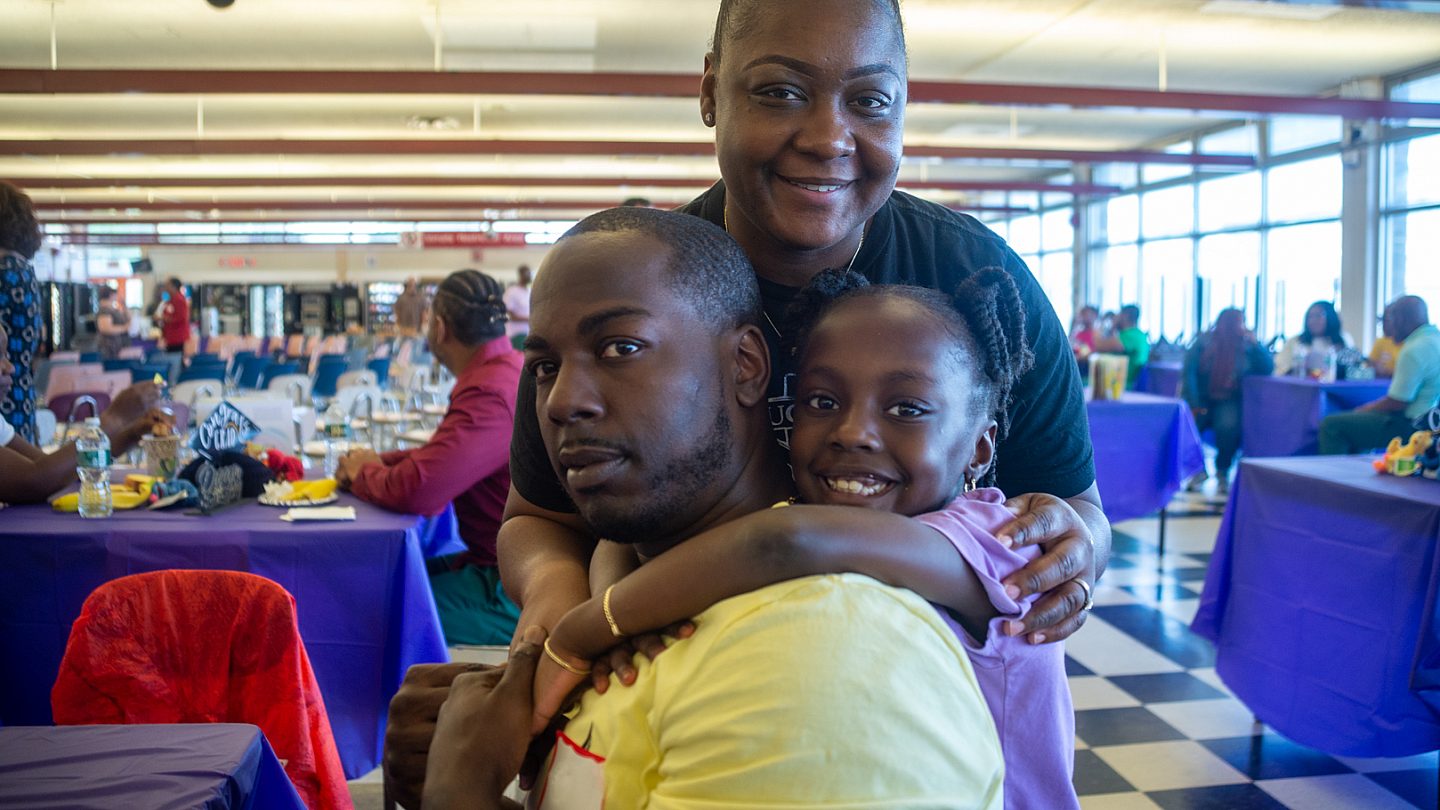
Parenting Course
Overview
First in the series is a 16-week Parenting Course designed to support participants to reflect on their own parenting, improve their understanding of child development, develop their confidence about parenting in the context of incarceration, and build stronger relationships with their children. Newer topics in the course include trauma and its effects on child development, the impact of systemic racism on children, parenting children with special needs and those who identify as LGBTQ+, and managing bullying and technology.
Results
Anonymous surveys show that 99% of participants would recommend the course to others, 96% plan to use the information and tools from the program, and 94% plan to have more communication with their children as a result of the program1. More than 90% of parenting course participants indicate increased confidence in their role as fathers.
Strengthening Relationships Course
Overview
Graduates of the FamilyWorks Parenting Course can enroll in a 6-session experiential learning course, Strengthening Relationships, in which participants explore their own thinking patterns, gain awareness of negative cognitive and behavioral patterns, and acquire insight into the experiences of their family members.
Results
In recent surveys, all participants indicated at the end of the course that they have more confidence in their ability to communicate with others and 97% said that they know how to handle conflict better 2. More than 96% of respondents said that they plan to use what they learned in the course, and 88% said that they had already put some of the lessons into practice, including communication and listening skills, and approaches to reduce conflict and better understand other people’s perspectives.
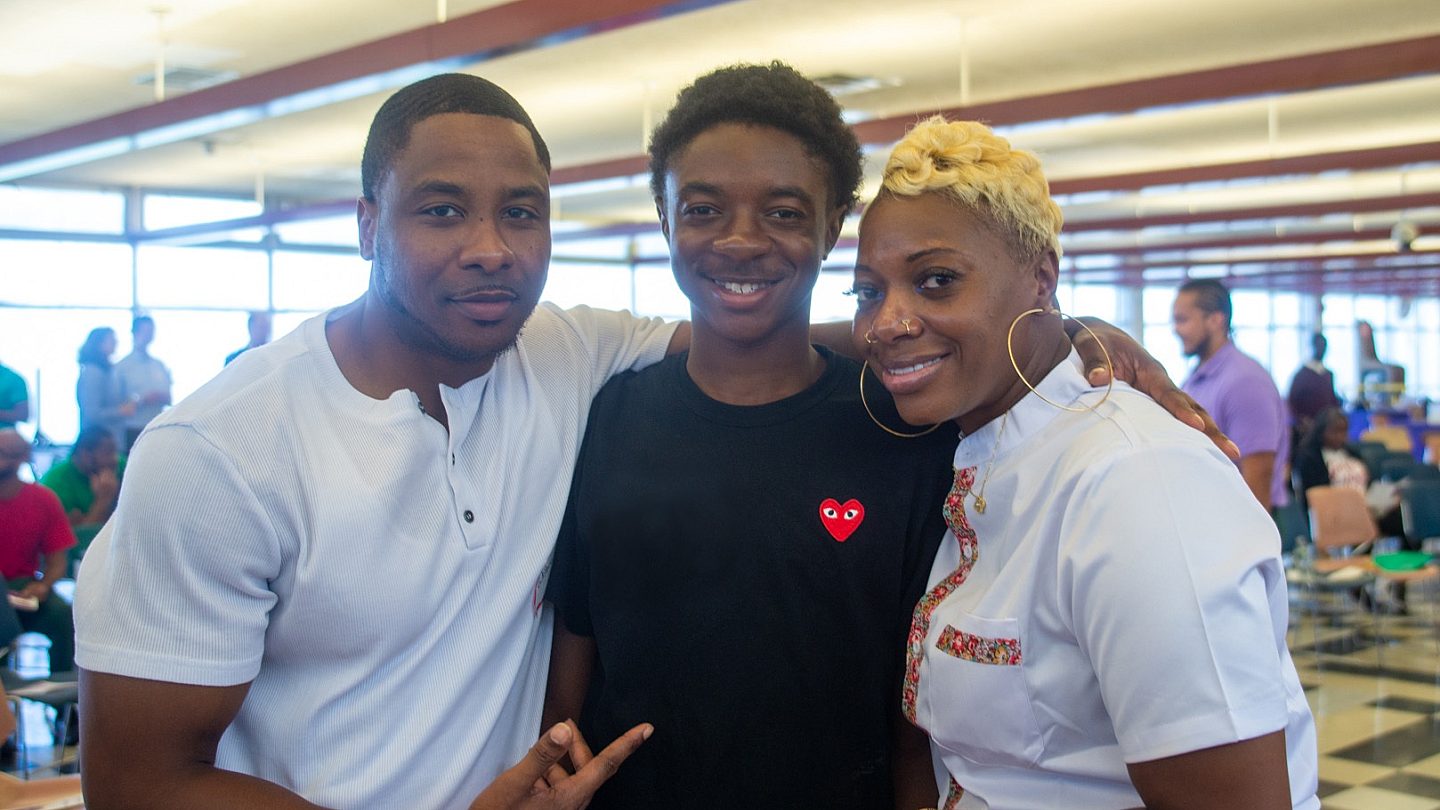
“FamilyWorks provides tools to become an active citizen and a better loved one. It’s about looking at life with the lens of contribution: ‘What can I offer?’ not ‘What can I take?’”
Connected Couples Seminar
Overview
An additional offering is a full-day Connected Couples seminar for married, committed, and/or coparenting couples to learn how to work as a team towards a healthy, satisfying relationship and a healthy family dynamic for themselves and their children.
Results
In the largest impact study ever conducted of relationship education for families affected by incarceration, results showed that couples who participated in Osborne seminars were less likely than comparison couples to perpetrate emotional abuse over time3.
Family Centers
FamilyWorks participants can further develop their parenting skills through hands-on activities in Osborne Family Centers located within five correctional facility visiting areas. These brightly-colored, child-friendly spaces are stocked with games, toys, and art supplies, and staffed by incarcerated men who are FamilyWorks graduates. The welcoming spaces provide a vastly different environment for family interactions than typically sterile prison visiting areas. In an average year, over 2,000 visits between fathers and children take place in Family Centers.
“Healthy relationships skills are important when you’re coming out, because you need to think about how you are going to negotiate coming back home and living with your family. You need to be able to resolve conflicts.”
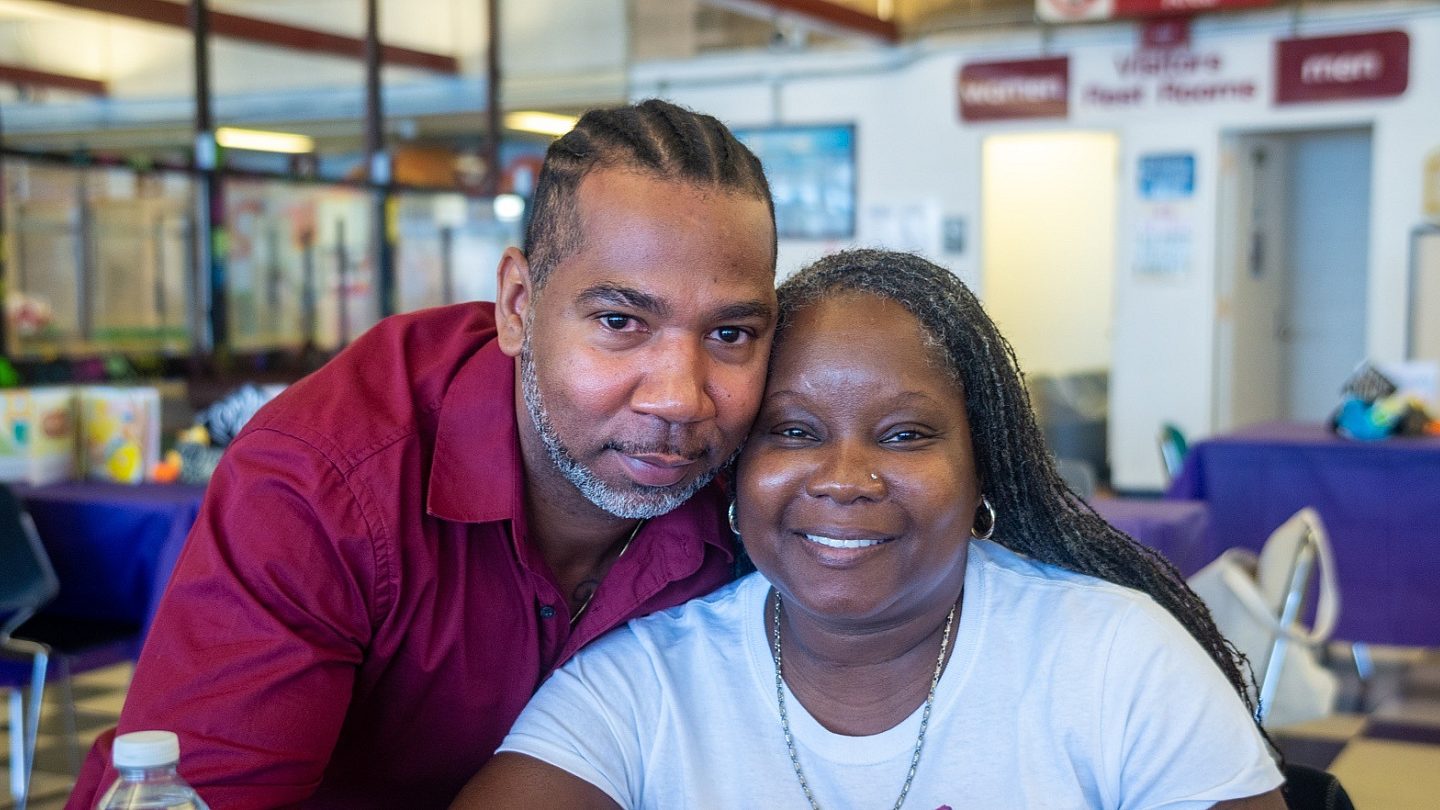
STRATEGIES FOR SUCCESS
Feedback from program participants highlights some of the key approaches that make the FamilyWorks program effective, including:
- Curricula created in collaboration with families impacted by incarceration
Committed, knowledgeable facilitators who create a classroom environment rooted in dignity and respect
Encouraging participants to learn from and support each other as they face challenges with parenting from prison
Staffing child-friendly visit spaces in prisons, where parents can strengthen family bonds and practice parenting skills in hands-on activities with their children [The NY Initiative for Children of Incarcerated Parents leads advocacy efforts to ensure that video visiting is a supplement to, not a replacement for, in-person visiting.]
Providing individual support for parents who are seeking to reconnect and rebuild relationships with their children
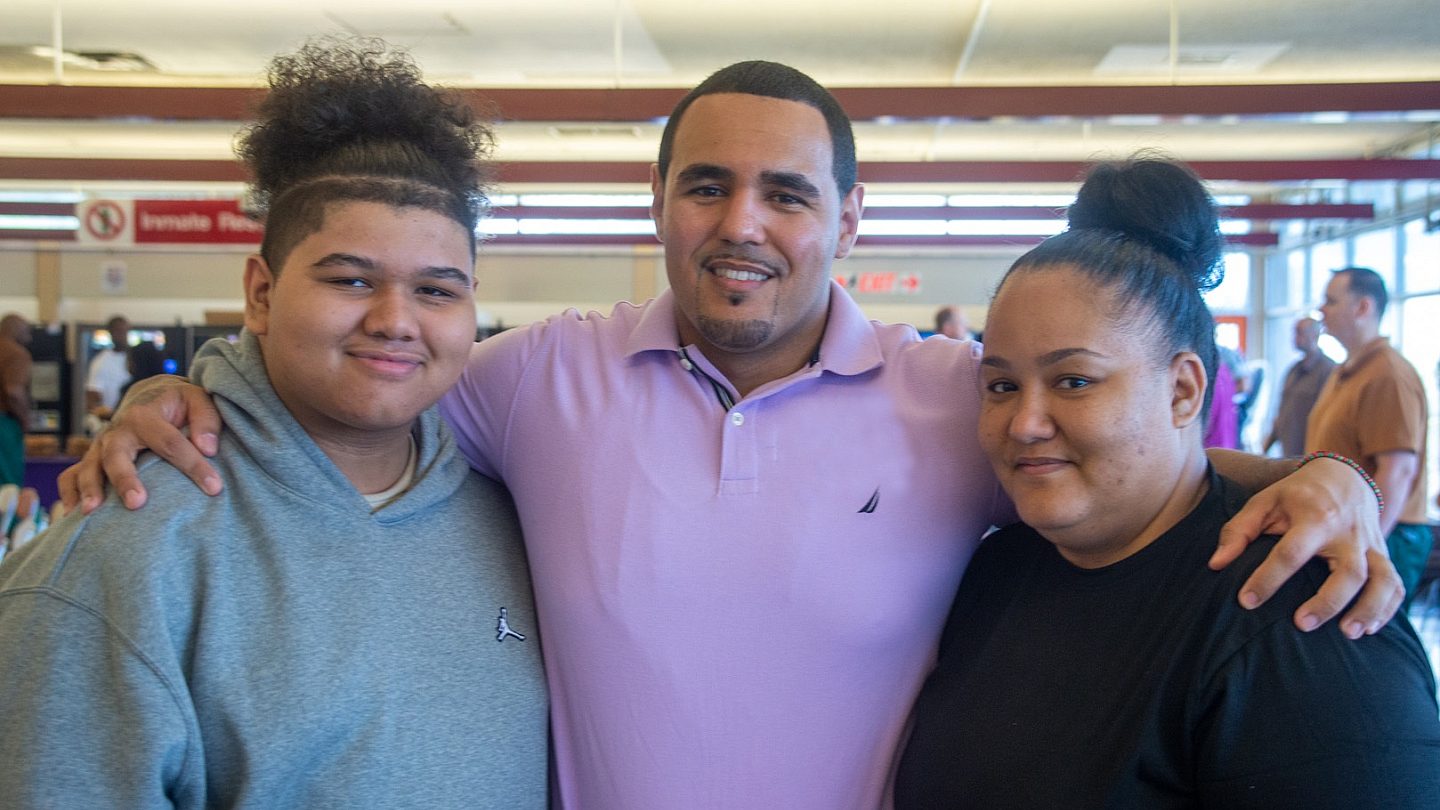
“I like the way the parenting course breaks down how sometimes us adults are being selfish; we don’t pay attention to little things that affect our kids. Now, before I make any decisions I always think about my kids first and their future.”
IN CONTEXT
- The proliferation of parenting programs in U.S. prisons is a response to the growing population of parents who are incarcerated and recognition of the importance of keeping families connected in spite of the many challenges incarceration presents.
- Nearly half (47%) of people incarcerated in state prisons are parents of at least one minor child4 and an estimated 4.5 million children in the U.S. have experienced parental incarceration5.
- Research shows that family connections are a factor in improved health and emotional wellbeing of people who are incarcerated, and also have benefits for correctional systems and public safety in terms of reduction in prison rules violations and reduced recidivism6.
- Prison-based parenting programs in particular offer a range of positive outcomes, including improved parenting skills and parental confidence, improved communication, and improved child wellbeing7.
Endnotes
1. Based on an analysis of 220 anonymous feedback surveys completed by participants at the end of the in-person parenting courses in Eastern, Fishkill, Green Haven, Otisville, Shawangunk, Sing Sing, Wallkill, and Woodbourne C.F. in 2022-24.
2. Based on an analysis of 158 anonymous feedback surveys.
3. Lindquist, C., Steffey, D., Tueller, S., McKay, T., Bir, A., Feinberg, R. K., & Ramirez, D. (2016). Multisite family study on incarceration, parenting and partnering: Program impacts technical report.
4. Bureau of Justice Statistics. Parents in Prison and Their Minor Children: Survey of Prison Inmates, 2016 https://bjs.ojp.gov/library/publications/parents-prison-and-their-minor-children-survey-prison-inmates-2016
5. Kids Count Data Center. Annie E. Casey Foundation. Analysis of data from National Survey of Children’s Health, U.S. Department of Health and Human Services
6. Wong, Lisa. Research roundup: The positive impacts of family contact for incarcerated people and their families. Prison Policy Initiative, 2021. https://www.prisonpolicy.org/blog/2021/12/21/family_contact/
7. Barnes-Proby, Dionne, Celia J. Gomez, Monica Williams, Matt Strawn, and Isabel Leamon, Programs for Incarcerated Parents: Preliminary Findings from a Pilot Survey. Santa Monica, CA: RAND Corporation, 2022. https://www.rand.org/pubs/research_reports/RRA1412-1.html